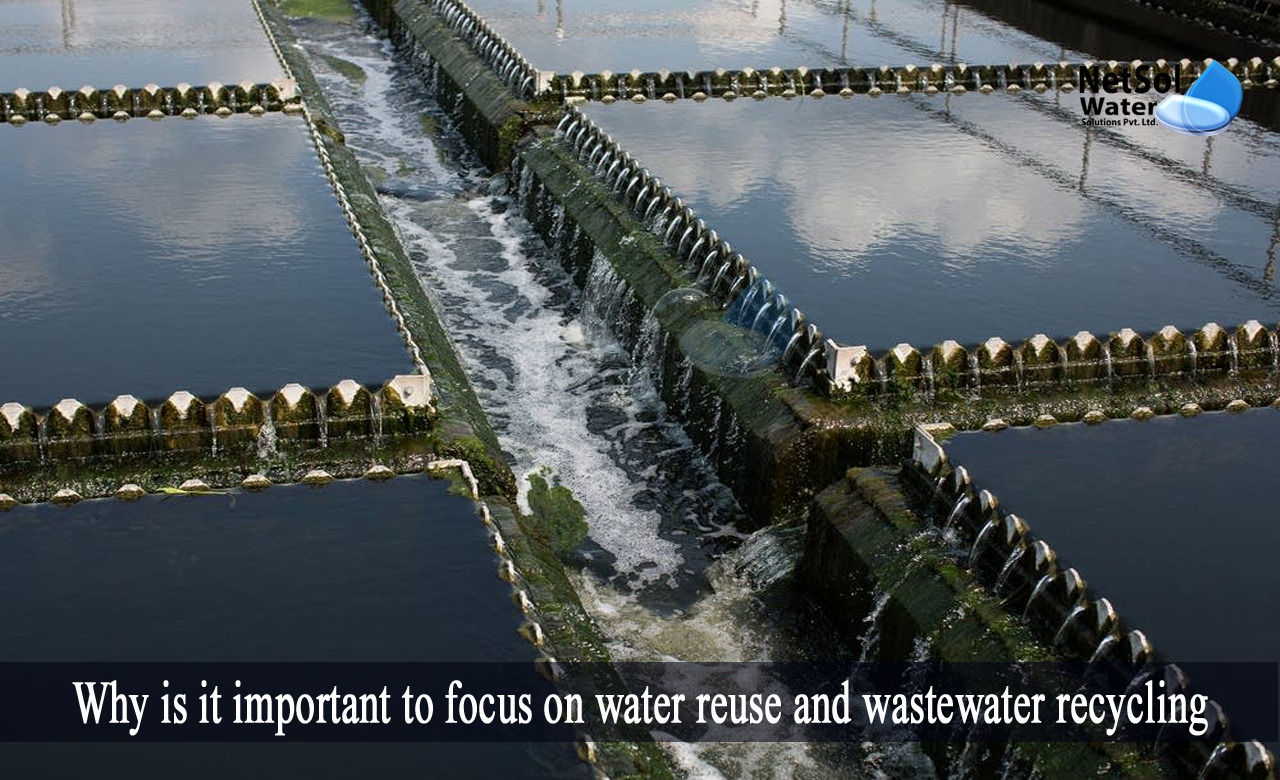Why is it important to focus on water reuse and wastewater recycling?
Wastewater is water that has been contaminated by human or industrial activity. Any wastewater discharged into the environment without proper treatment, has the potential to pollute the environment. In fact, 80% of municipalities and industrial wastewater is still released into the natural environment untreated, causing water scarcity.
To address such issues, water reuse and wastewater recycling are critical for everyone. Therefore, it is important to focus on water reuse and wastewater recycling.
Recycling of Wastewater
Recycling wastewater would mean treating and reusing wastewater from a home, or an industrial activity. This resource could be used for various non-potable operations, such as cooling or other non-potable home applications. Using a wastewater recycling method would conserve potable water for industrial applications, while also reducing its use for drinking water.
Wastewater reuse
The use of treated (or untreated) wastewater for a useful purpose, is referred to as wastewater reuse.
Importance of water reuse and wastewater recycling
· Reduces freshwater diversion from sensitive ecosystems
Plants, wildlife, and fish all rely on enough water flow for their habitats to survive, and reproduce. Water quality and ecosystem health might not suffer from a lack of enough flow, as a result of diversion for agricultural, urban, and industrial purposes.
People who reuse water can augment their needs by employing a dependable source of recycled water, freeing up significant volumes of water for the environment, and increasing flows to key ecosystems.
· Reduces pollution to sensitive water bodies
In some circumstances, the impulse for water recycling stems from a desire to minimize, or reduce wastewater discharge to the ocean, an estuary, or a stream.
· It is used to establish or improve wetlands and stream habitats
Wetlands provide numerous benefits, including wildlife habitat, improved water quality, flood reduction, and fish spawning grounds. Water flow can be supplemented with recycled water to sustain, and improve aquatic and wildlife habitats in streams that have been harmed or dried up, due to water diversion.
· Pollution reduction and prevention
Pollution loadings to oceans, rivers, and other bodies of water are reduced, when pollutant outflows to these bodies are reduced. Furthermore, in some situations, contaminants that are discharged into a body of water, might be beneficially utilized for irrigation.
Recycled water, for example, may have more nutrients, such as nitrogen, than drinkable water. The use of recycled water for agricultural and landscape irrigation, can supplement nutrients and reduce the demand for synthetic fertilizers.
· Conserves energy
As there is a greater need for water, more water is extracted, treated, and transported, often over long distances, which can consume a lot of energy.If groundwater is the local source of water, the level of groundwater drops as more water is extracted, increasing the energy required to pump the water to the surface.
Recycling water on-site or nearby, minimizes the amount of energy required to transport water over long distances, or to pump water from deep inside an aquifer. Using low-quality recycled water for applications that do not require high-quality water, saves energy and money, by lowering treatment requirements.
· Reduces the problem of water shortage for humans
Water use inevitably results in the generation of wastewater. The demand for freshwater has increased, but the supply of fresh water has decreased.
Every person may tackle the problem of water scarcity by recycling and reusing. Water that has been recycled or treated at wastewater or water treatment plants is pure and safe, to use.
Conclusion
In addition to providing a dependable, locally managed water supply, water recycling provides substantial environmental benefits. Water recycling, by offering an additional supply of water, can assist us in developing solutions to prevent water diversion from fragile ecosystems.
Other benefits include lower wastewater discharges as well as pollution control, and prevention. Recycled water can also be used to create or improve wetlands, helping to alleviate the problem of water scarcity.
How can we assist?
Netsol Water provides the best treatment facilities for water recycling and reuse. We offer wastewater treatment facilities, sewage treatment, effluent treatment, RO plants, and membrane filtration,to efficiently treat wastewater and water.
Netsol Water is Greater Noida-based leading water & wastewater treatment plant manufacturer. We are industry's most demanding company based on client review and work quality. We are known as best commercial RO plant manufacturers, industrial RO plant manufacturer, sewage treatment plant manufacturer, Water Softener Plant Manufacturers and effluent treatment plant manufacturers. Apart from this 24x7 customer support is our USP. Call on +91-9650608473, or write us at enquiry@netsolwater.com for any support, inquiry or product-purchase related query.



